Look Out for These Boston Internships

If you’ve read MetroMBA’s look at how summer internships play a crucial role for MBA students, you’re probably already familiar with the many benefits of interning during your MBA career. Between forging professional connections, gaining hands-on experience, and top tier salaries, MBA students have lot to gain from seeking out these opportunities. Boston internships manage to stand out, in particular, because of a wealth of excellent business school options.
Of course, the internship model is a win-win for all participants: students get the opportunity for professional experience, and companies get to work alongside emerging talent in the business world. Companies across the U.S. actively search for and recruit this talent. The need and capacity for interns, however, can vary from organization to organization. As students begin their search for the perfect internship, and can be important to take note of what companies are the biggest internship employers in their area.
Boston Internships for MBAs
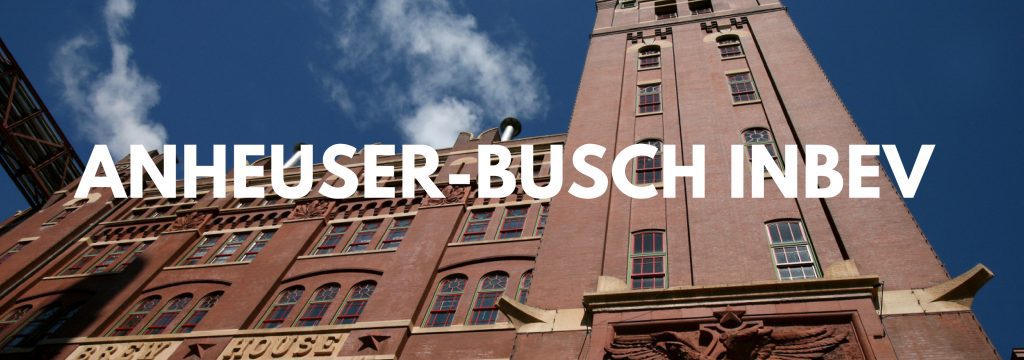
Anheuser-Busch InBev (AB InBev), created ten years ago through the merger of Anheuser-Busch and InBev, is one of top hirers for MBA students in the Boston region. A Belgian-Brazilian beverage and brewing company, AB InBev has offices throughout the world, currently employing around 183,000 people. Given the global nature of their product, the company sponsors MBA and internship opportunities with a focus on global business. Each summer, the company offers a 10-12 week summer internship at their New York office, which often results in getting hired into the company’s Global MBA program—a one year high potential leadership program that prepares participants for quick career growth.
Anheuser-Busch InBev was one of the top hirers for MBA internships at both the Harvard Business School and the Sloan School of Management at MIT, two of the most highly ranked business programs in the world. At MIT Sloan, AB InBev employed nine members of the Class of 2017 as summer interns.
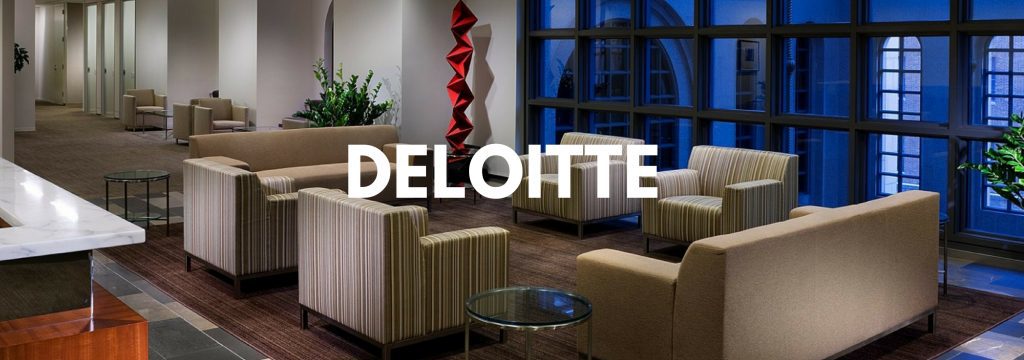
Founded 173 years ago in London, Deloitte remains one of the world’s top professional services networks today, providing tax, consulting, enterprise risk and financial advisory services throughout the world. As of 2016, Deloitte was recognized as the 6th largest privately owned organization in the United States.
With roughly 263,900 employees worldwide, it’s probably no surprise that Deloitte offers plenty of Boston internships. Deloitte Consulting hired six MBA interns from MIT Sloan for the summer of 2017, and also made the lists of top employers for F.W. Olin, Harvard, and Suffolk University’s Sawyer Business School.
The vast number of student interns employed at Deloitte may be a reflection of their vast internship program, which include programs like the Deloitte Consulting Immersion Program, Deloitte Women’s Leadership Launch, and the Advanced Degree Veterans’ Forum.
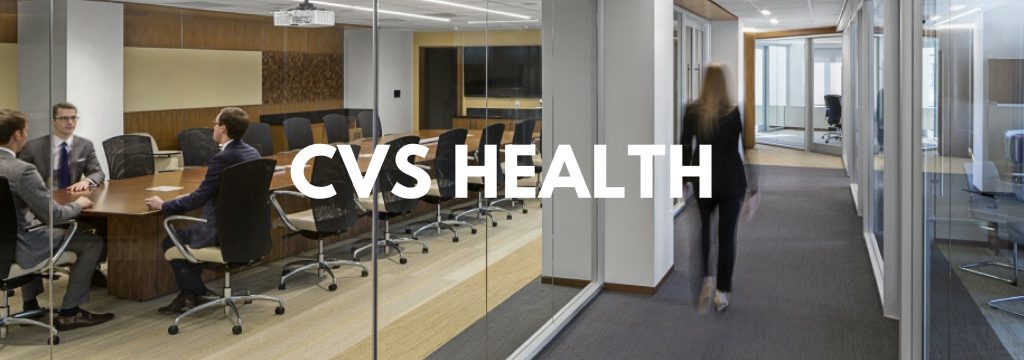
At Boston University’s Questrom School of Business, 108 different companies hired 140 students for internships in 2018. CVS Health, also an employer for MBAs from Harvard Business School and Babson College’s F.W. Olin Graduate School of Business, hired five students from Questrom for summer internships, making it the number one employer for that school.
CVS Health Corporation, headquartered in Woonsocket, Rhode Island, has grown since 1964 into a top Fortune 500 company with more than 246,000 employees and $177 billion in annual revenue. In December 2017, the retail and health care company also made headlines when it acquired health insurance mega-company Aetna for $69 billion.
CVS Health offers a number of MBA internship programs for MBA students, depending on their interest within the field. Among them are the CVS Year-round internship, Spanish Immersion Summer Internship, and Specialty Clinical Innovation Internship. CVS also believes in students growing their careers with the organization, which likely means greater opportunity for an internship to turn into a long term career.
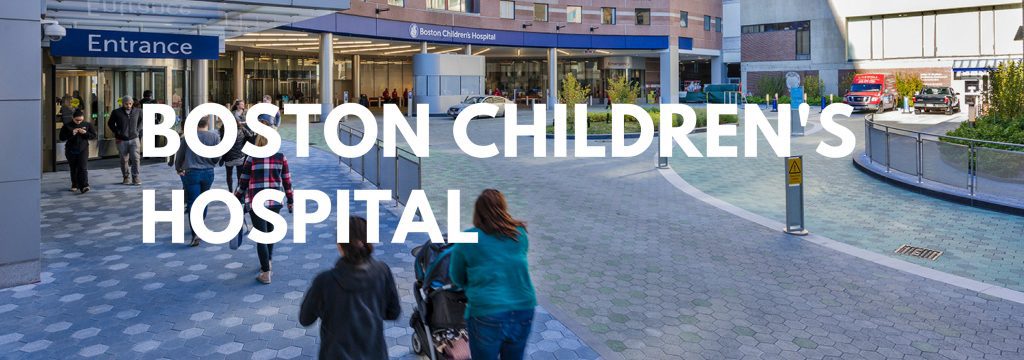
With the growing popularity of jobs within the healthcare administration field, it should come as no surprise that one of the top employers for MBA internships in Boston is the Boston Children’s Hospital. The hospital, founded in 1869, has been ranked by the U.S. News & World Report #1 in eight of ten clinical specialties. For 2018-19, it was named the country’s number one pediatric hospital.
The hospital is affiliated with Harvard Medical School, so it’s likely no surprise that they are a top employer of MBA students as well, learning about the other side of health care. They are also one of the top employers for MBA students at Northeastern’s D’Amore-McKim School of Business, which requires students to pursue a corporate residency for six months of its 24-month full-time MBA program.
How To Create Your Own Internship, and More – Boston News
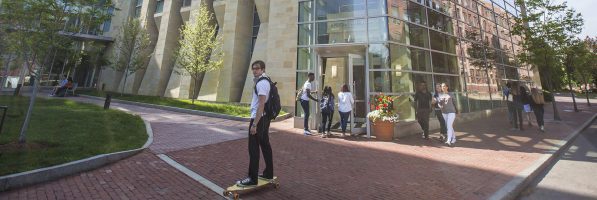
Let’s explore some of the most interesting stories that have emerged from Boston business schools this week.
How to Land an Internship That Doesn’t Exist Yet – D’Amore-McKim Blog
The D’Amore-McKim School of Business at Northeastern University recently published an account of how Matheus Dos Santos, DMSB ’19 created his own internship at Brazilian bank branch Banco Bradesco.
Dos Santos, a Brazilian native, sought out an internship at Banco Bradesco as an opportunity to “learn more about the industry” while he spent his summer back home in between his first and second years at D’Amore-McKim.
Dos Santos reports, “When I was talking to them about a summer job, they didn’t have any process in place. They weren’t sure at first how to hire me formally, and since I’ve started, all sorts of people have come up to me to say that I’m the first one the bank has hired for this kind of position.”

AP Photo via Victor R. Caivano
Dos Santos helped Banco Bradesco “develop an online trading platform to reach millennials.” Edilson Fontenele, head of customer experience at Bradesco and Dos Santos’ supervisor, writes that Dos Santos’ appeal was his unique perspective as a “millennial who knows the Brazilian environment and also had exposure to international markets.”
You can read the full article here.
The Big Leap – Sawyer Business Blog
Sawyer Business School student Jennifer Wiens writes candidly about the precise moment she decided to transform her life and career. After being laid off from her job at a Seattle biotech company, Wiens chose to move cross-country to Boston in part to “go where the jobs were” but also because she thought Sawyer “could help me capture that sense of control in my career.”
Wiens simultaneously began her Sawyer EMBA and a stint as Charles River Labs’ global product manager where she coordinated “multiple teams and meeting with clients all around the world.” She writes about how the two fed into each other.
“Because of my Suffolk experience, I don’t feel like I’m out of my element. I’m explaining business concepts to people who’ve been in business for 20 years. I’m teaching them current approaches to certain things.”
Then Wiens pulled another 180 by leaving the Charles Rivers Lab gig. As part of her EMBA capstone course, she created a business strategy and marketing plan for Advanced Dental Sleep Medicine, which offers “alternative, non-surgical ways to reduce sleep apnea.” According to the article, both of which worked so well that the “owner convinced her to leave Charles River Labs and come work for him [as] full-time employee number three.”
Wiens writes, “The company’s gotten a lot of good buzz, so the business is poised to explode and franchise out. And that’s where I come in.”
You can check out the full article here.
3 Steps Toward Safer and Sounder Software – MIT Sloan Newsroom
Deutsche Bank CIO and head of safety and soundness Frédéric Véron recently gave a talk at the MIT Sloan CIO Symposium, where he shared 3 pieces of wisdom for making software “safe and sound.”
Véron said “safe and sound” software is about a “mix of hyper-awareness, good planning and foresight, and learning quickly from mistakes.”
According to the article, “hyper-awareness” involves knowing “how all your software is actually being used day-to-day, ensuring all stakeholders in development understand the full scope of the product, and continuously taking baseline metrics to understand what can be considered normal operating conditions for a system.”
Good planning and foresight entails that “all of the different procedures that will be necessary to maintain the system in production mode need to be thought through ahead of time. You can always bolt it all on later, but it will cost you more money and it won’t be native or work as well.”
Véron advocates “failing and adapting fast” by adopting agile and DevOps. “The whole point of agile is about adopting the philosophy where you break down major efforts into smaller efforts, allowing you to do incremental releases so that you can make a small change, and if it isn’t working you can pull it out of production quickly without impacting the whole thing.”
He elaborated, “Safety and soundness is about ‘How do we make the enterprise safer and more sound, right from the get-go?’ Not just when things happen, but before things happen.”
The full article can be found here.
MIT Breaks Down Starbucks Response to Recent PR Nightmare, and More – Boston News

Let’s explore some of the most interesting stories that have emerged from Boston business schools this week.
What Starbucks Got Wrong—and Right—After Philadelphia Arrests – MIT Sloan Newsroom
Following Starbucks’ PR nightmare this past April in which an employee at a Philadelphia Starbucks had two African American patrons arrested after while they waited to conduct a business meeting, Starbucks announced it will host an afternoon of racial bias training for 175,000 employees across 8,000 of its locations.
MIT Sloan senior lecturer Roberta Pittore commended the coffee giant on the sincere response it made following the initial clumsy attempt to address the controversy in a generalized statement.
Regardless of the potential impacts a single afternoon of racial bias training might have on its employees, Pittore believes that “something is better than nothing, more is better than less, and sooner is better than later. I think what it does achieve from Starbucks’ point of view is that it changes the discussion from ‘What did our employee do that was offensive,’ to ‘How can we learn and how can we change?’”
You can read professor Pittore’s entire take on the incident and the Starbucks response here.
Two Northeastern Students Created an App to Revolutionize the School Bus Industry – D’Amore-McKim Blog
The Best Buy-sponsored E-Fest recently awarded $40,000 to BusRight, an app current D’Amore-McKim School of Business students Keith Corso, ’21, and Evan Eddleston, ’22, co-founded to “revolutionize the school bus industry.”
BusRight is designed to “track school bus passengers, current location, calculate optimal travel routes, curb carbon emissions, reduce transportation costs for bus companies, and improve quality of life for passengers, parents, and bus drivers.” According to the article, many school administrators and bus company officials have expressed interest in using the app.
Eddleston writes, “Bus drivers are home earlier, students are home earlier, and parents know where their kids are. It’s a much more efficient system than the one in place today.”
You can read more about BusRight here.
“Be Unreasonable” – Sawyer Business Blog
The keynote speaker at the Sawyer Business School 2018 commencement was Boston Foundation president and CEO Paul S. Grogan who received an honorary doctorate and shared some refreshing words of wisdom drawn from a lifetime of devotion to the betterment of communities.
“Powerful interests conspire to keep things the way they are. They’re fiercely resistant to change because they benefit from the status quo. [There is a] need for courageous public servants who can stand up to pressure and citizen activists who can reshape public opinion in their communities.”

Boston Foundation president and CEO Paul S. Grogan, speaking at this month’s Sawyer Business School commencement / Photo via suffolk.edu
Grogan advised graduates to think beyond the material success their prestigious degree will help them attain. “I implore you to volunteer, to vote, to donate to charity … but moreover to be an active citizen and fight for your fellow neighbors who don’t enjoy the full promise of an American life.”
You can read more highlights from Grogan’s lecture here and watch his speech in its entirety below.
HBS Reviews Elon Musk’s Compensation Plan, and More – Boston News

In case you missed it, let’s explore some of the most interesting stories that have emerged from Boston business schools this week.
Elon Musk’s Unusual Compensation Plan Isn’t Really About Compensation at All – Harvard Business Review
Harvard Business School faculty member George Serafeim, the Jakurski Family associate professor of business administration, recently published his insight into the compensation package Tesla shareholders awarded CEO Elon Musk this year—“likely the largest compensation package ever awarded to a CEO.”
Serafeim argues that the design of the compensation plan and its announcement were about “signaling a credible commitment to Tesla’s purpose: to become a clean energy giant that helps address climate change by transforming mobility. To get there, Musk needs not only the normal sort of investor confidence, but also for investors to buy into his radical vision for the company.”
Serafeim further explains:
“Musk’s compensation plan, with its ambitious targets for market capitalization, focuses the mind on exactly this vision. For Tesla to reach a $650 billion valuation by 2028, the market will have to shift dramatically, with electric vehicles becoming the overwhelming percentage of all new sales. That would boost Tesla revenues from both vehicles and batteries. Such a future would also likely require that Tesla’s autonomous pilot technology becomes state-of-the-art, allowing it to be used safely and widely in Tesla vehicles but also potentially through licensing by other players.”
You can read more about Serafeim’s insight here.
Finance by Day, Pro Soccer by Night – Carroll School of Management News
The Boston College Carroll SOM recently profiled Issey Maholo ’07, a polymath who spends his days as VP of prime brokerage for J.P. Morgan and his nights as goalie for the Hong Kong Football Club.
Maholo, a native of Tokyo born to a Congolese father and Japanese mother, writes, “There will be plenty of excuses you can make in life as to why you should stop doing what you love to do.” He also notes the parallels between his vocation and avocation, particularly when it comes to teamwork:
“One person can shape a game, but usually not a whole season. It’s the same in finance—someone can bring in a big mandate, but you all have to pull together to become the top bank in Asia.”
You can read more about Maholo here.
The Quest for Error-Free Care – Sawyer Business School Blog
The Suffolk University Sawyer Business School recently hosted a panel discussion sponsored by the Suffolk University Chapter of the Institute for Healthcare Improvement (IHI), which touched upon “trends in the industry, patient safety, how the patient experience has improved over the decades, job-hunting advice, and many other subjects.”
The talk featured three Boston health care leaders: Lahey Hospital and Medical Center Chief Quality and Safety Officer Dr. Judith Melin; Mass General Hospital Associate chief quality & safety officer Mary Cramer; and Professor Elizabeth Turner, a nurse-attorney whose practice focuses on health care law.
Professor Mona Al-Amin, faculty adviser to the IHI group, writes, “The importance of this event was that students learned about quality improvement in healthcare organizations. They also got to ask questions about the field. And they got to learn about career choices and what skills they might need.”
You can read all the takeaways from the discussion here.
What are the Fastest MBA Programs in Boston?

Some students want to complete their MBA coursework as quickly and efficiently as possible—time is money after all! Continue reading…
Where Toys R Us Went Wrong, Sawyer International Business Etiquette, and More – Boston News

Let’s explore some of the most interesting stories that have emerged from Boston business schools this week.
Here’s What Sunk Toys R Us – MIT Sloan Newsroom
Experts from MIT Sloan offered a few choice insights into what Toys “R” Us, whose future currently remains in flux, could learn from the hiccups along its 70 year-long history.
Senior lecturer in work and organization studies Peter Kurzina writes that Toys “R” Us “ignored Amazon eating their lunch, thus failed to prepare and meet the challenge of competition.”
Associate professor of finance Andrey Malenko, a fellow MIT Sloan colleague, also critiqued the toy giant’s enormous debt burden. “If you’re running a business that might be sensitive to e-commerce, to the recession, then loading up on debt as much as [Toys “R” Us] did, it’s very risky and you probably shouldn’t do it.”

In March 2018, Toys “R” Us announced it would be closing all US and UK locations.
Read more of the duo’s analysis here.
International Business Basics – Sawyer Business Blog
The act of doing business across cultures often entails unexpected byproducts that Sawyer addressed in its recent “Business Protocol Across the Globe” forum, organized by Colombian native Laura Reales, BSBA ‘18.
“What if I wanted to move to another part of the world, like Saudi Arabia or France or China? How could I make connections with people so that I don’t look ignorant of their culture? So I decided to create a space where it was ok to talk about those differences.”
Read here to learn the answers to questions like, “What’s the proper way to present a business card in China?” and “What’s a good way to begin a negotiation in Turkey?”
Alumnus’ Company serves the Housing Needs of a Vulnerable Community – D’Amore-McKim Blog
The Northeastern University D’Amore-McKim School of Business profiled alum Andy Rosenthal, a 2007 alum who abandoned a lucrative career in hedge fund software to co-found the Terenbinth Group, which has become the “largest, family-owned provider of housing to people with intellectual and developmental disabilities.” Rosenthal explains his company’s model.
“We’re a real estate company focused on providing quality, safe, affordable housing to a vulnerable community,” Rosethal said in the interview. “In short, we find homes, fix them up, customize them to suit the tenants—think wheelchair accessibility, replacing door knobs with door levers, waterproof flooring, installing roll-in showers, etc.—and then rent them directly to the individuals.”
The company’s 68 homes currently accommodate more than 225 people across the state of Indiana and it’s looking to expand. You can learn more about the Terebinth Group’s plans here.
What are the Best Real Estate MBAs in Boston? – MetroMBA
Earlier this week we highlighted the three strongest Boston metro schools that can help you earn your way into the real estate industry: Harvard Business School, MIT Sloan, and the Babson College F.W. Olin Graduate School of Business.
Regarding Babson, writer Jillan Markowitz writes:
“At Babson College’s F.W. Olin Graduate School of Business, MBA students can pursue the finance concentration, which offers several courses in real estate. Students can rake courses like Real Estate Financial Modeling, Real Estate Fundamentals, or Real Estate Development. According to recent Olin graduate employment statistics, 10 percent of the 2017 MBA class landed jobs in real estate. This number may not seem overwhelming, but it dwarfs the percentage seen in many MBA programs (usually about two to three percent).”
Learn more about the best real estate programs in Boston here.
